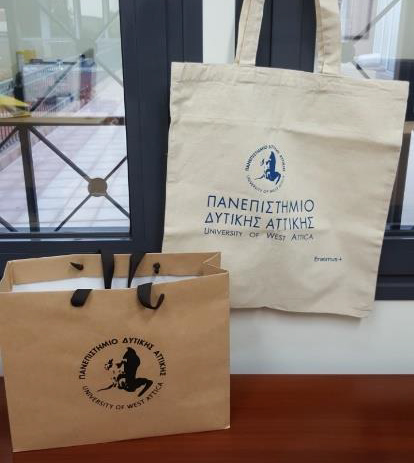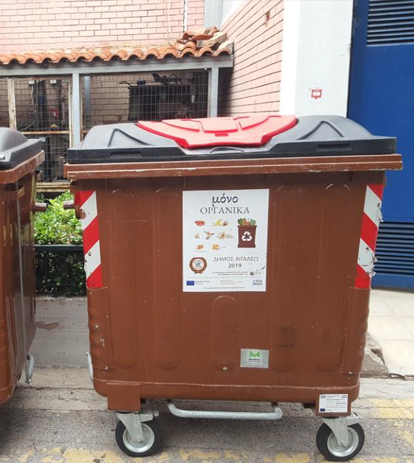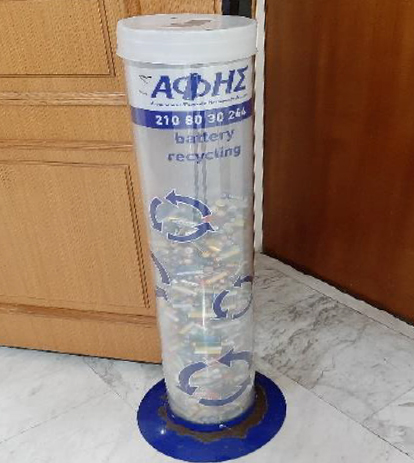RECYCLING
RECYCLING

UNIWA cooperates for recycling with the Attica Prefecture and the company REPRODUCTIVE RECYCLING SA. It possesses 100 recycling bins in the interior of its three University Campuses. The recycling takes place by two types of bins with the appropriate marking and concerns plastic bottles & metal boxes and the paper packaging. The emptying of the bins and their maintenance is undertaken by the aforementioned company in collaboration with bodies of social and solidarity economy, in the framework of the Integrated Program of Actions of Reciprocal Recycling and Environmental Protection.
UNIWA also has a collaboration with the AFIS (Portable Batteries Recycling), the Alternative Management System for Portable Batteries that has been approved by the National Ministry of Ministry of Environment, Spatial Planning and Public Works. Batteries should not be disposed of in the normal trash due to their high concentrations of toxic chemicals and heavy metals.
Program to Reduce the Use of Paper and Plastic on Campus
- UNIWA supports paperless protocol system to reduce paper in daily workplace.
- Solutions of reusable paper in back office, e.g. using 2-side of paper, always recheck your data before print, use online system instead of hard copy.
- UNIWA uses reusable bags made from sustainable materials (recycled paper and fabric).
- Greece as a country has a policy of plastic bag reduce since January 2018, according to the EU policies. From July 2021, measures will be implemented that will include the ban on the sale of products such as straws, plates, cutlery and disposable plastic cups.
Organic Waste Treatment
In UNIWA, the structures that produce organic waste are canteens and cafés, which manage in complete autonomy this kind of waste. The canteens and the cafés manage the organic waste trough contracts with the Municipality of Egaleo and Athens. Municipal services collect the organic waste on a daily basis and they deliver them at a state-authorized waste treatment plant that processes the material.
Inorganic Waste Treatment
- Inorganic Waste treatment in UNIWA follows an official procedure with special protocols, further collection of items by the university’s Technical Services, storage in specially designated spaces within the three campuses and collaboration with local authorities (municipalities, prefectures), public and private bodies for further collection and treatment.
- UNIWA has a collaboration with the AFIS (Portable Batteries Recycling), the Alternative Management System for Portable Batteries that has been approved by the National Ministry of Ministry of Environment, Spatial Planning and Public Works. Batteries should not be disposed of in the normal trash due to their high concentrations of toxic chemicals and heavy metals.




UNIWA cooperates with the Attica Region for Recycling
A meeting to support the ecological awareness of the University was held on Wednesday, September 9, 2020 at the Ancient Olive Grove Campus. In this context, a kind sponsorship of 100 recycling bins for the three Campuses was implemented by the Attica Region in collaboration with REPRODUCTIVE RECYCLING SA.
The sponsorship was received by the Rector, Professor Panagiotis Kaldis and the Attica Regional Governor George Patoulis, in the presence of the Deputy Regional Governor of the Western Sector of Athens Andreas Leotsakos and the Mayor of Egaleo Giannis Gikas.


